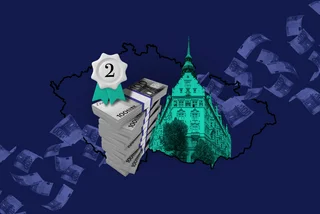A trend of institutional rental housing, known as "build to rent" (BTR) apartments, is rapidly gaining momentum in Czechia according to a recent analysis by real estate consultancy firm BTR Consulting.
Convenience and non-commitment
The report reveals that the number of fully equipped apartments available for immediate occupancy has more than doubled in the first half of this year compared to 2020. The data suggests that this growth trajectory will continue, with the projection that the Czech Republic will have over 10,000 BTR apartments by 2030.
"BTR" specifically refers to real estate structures specifically constructed for rental purposes, encompassing both individual apartments and co-living setups, where small apartments are complemented by shared communal spaces. These units come fully or partially furnished and include kitchen amenities, furniture, and sometimes even electronics such as televisions. Typically, individuals opt for BTR housing for shorter durations around one to two years.
The driving factors behind this expanding demand for institutional rental housing are multi-faceted. The younger generation, in particular, values the flexibility that rental arrangements offer, avoiding the commitment of long-term ownership. For developers, partnering with investors and funds keen on rental properties presents an attractive avenue for sustained collaboration, allowing for more expedited development of large-scale projects compared to traditional individual apartment sales.
Pricier than standard rentals, but growth still expected
Comparative analysis between BTR Consulting and Deloitte indicates that the average rental price for BTR apartments in Prague is around CZK 534 per square meter, incorporating energy and service fees. This is considerably higher than the average for traditional rentals (in the capital, this stands at about CZK 346 per square meter). Currently, the vacancy rate for these BTR apartments is 28 percent, with the majority of occupants being Czech nationals.
BTR projects are proving to be financially sound endeavors as well, with current profitability ranging between 3 to 4.5 percent. BTR Consulting anticipates this figure to grow by up to 6 percent in the coming years. Among the notable players in this market is Czech developer Trigema, which is in the process of readying 860 apartments across various Prague projects. This diversified approach includes co-living spaces, standard apartments, and premium housing offerings.
Foreign investors are also showing keen interest in this sector. Israel's AFI, the Czech bank Česká spořitelna, and XPlace, in collaboration with the Prague archdiocese, are just a few examples. Even international entities, like Lithuania's Baltic Asset Management, are preparing to transform Prague's Vítkov hotel into shared flats, emphasizing the rising global trend of institutional rental housing.












 Reading time: 2 minutes
Reading time: 2 minutes 
























